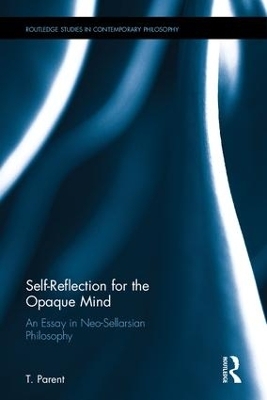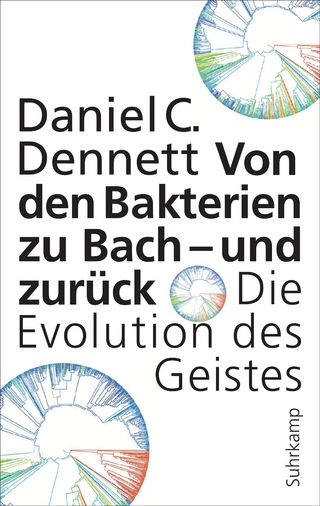
Self-Reflection for the Opaque Mind
Routledge (Verlag)
9781138668829 (ISBN)
T. Parent is a Visiting Assistant Professor in the philosophy department at Virginia Polytechnic and State University. He came to Virginia Tech in August 2009, also the month the Ph.D. was granted (UNC, Chapel Hill). Primarily, he works on the philosophy of mind, epistemology, and meta/ontology. His publications on such topics have appeared in Philosophical Studies, the Journal of Philosophy, and the Stanford Encyclopedia of Philosophy, among others. He lives with his wife in Blacksburg, Virginia.
Part I: Preliminaries
Preamble: Is Philosophy Anti-Scientific?
1. Introduction: How is Rational Self-Reflection Possible?
2. The Empirical Case against Infallibility
Part II: Knowledge of Thought
3. Infallibility in Knowing What One Thinks
4. Objection 1: It’s Apriori that Water Exists
5. Objection 2: Thought Switching
6. Content Externalism Does Not Imply Wayward Reflection
Part III: Knowledge of Judging
7. Infallibility in Knowing What One Judges
8. Infallibility in Knowing What One Expresses
9. Objection 1: It’s Apriori that the Mental Exists
10. Objection 2: Attitude Switching
11. Attitude Confabulation Does Not Imply Wayward Reflection
Part IV: Denoument
12. Conclusion: How Rational Self-Reflection is Possible
| Erscheinungsdatum | 21.02.2017 |
|---|---|
| Reihe/Serie | Routledge Studies in Contemporary Philosophy |
| Zusatzinfo | 6 Line drawings, black and white |
| Verlagsort | London |
| Sprache | englisch |
| Maße | 152 x 229 mm |
| Gewicht | 566 g |
| Themenwelt | Geisteswissenschaften ► Philosophie ► Erkenntnistheorie / Wissenschaftstheorie |
| Geisteswissenschaften ► Philosophie ► Sprachphilosophie | |
| Geisteswissenschaften ► Psychologie ► Verhaltenstherapie | |
| ISBN-13 | 9781138668829 / 9781138668829 |
| Zustand | Neuware |
| Informationen gemäß Produktsicherheitsverordnung (GPSR) | |
| Haben Sie eine Frage zum Produkt? |
aus dem Bereich


